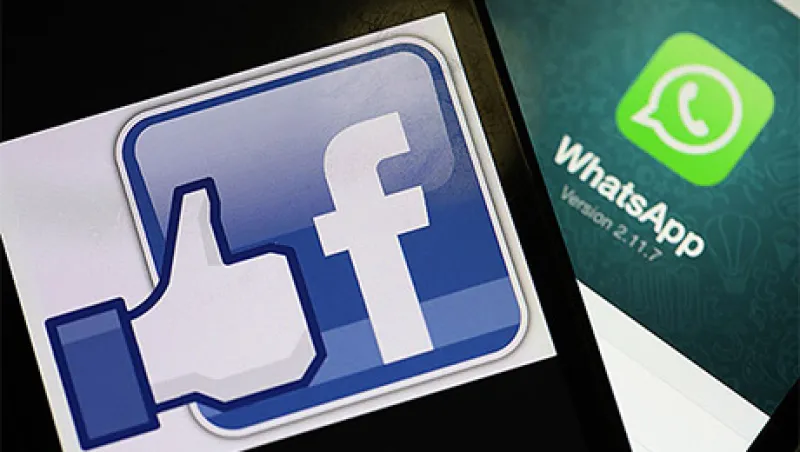When is a company with $10 million in revenue worth almost $22 billion? Facebook chairman and CEO Mark Zuckerberg justified paying that sum for mobile messaging provider WhatsApp because its product supports the social media giant’s stated mission: to “give people the power to share and make the world more open and connected.” The price tag raised many eyebrows, but technology analysts contend that far from being a harbinger of the next bursting bubble, the October deal will probably be a winning strategic move for Facebook. One reason is that there was a bigger prize up for grabs: data.
Facebook is competing with fellow tech titans Apple, Google and Microsoft Corp. to gather details on mobile and web users for advertising purposes and to better grasp what consumers want. Snapping up a player like WhatsApp, whose user base has exploded to about 500 million since it launched its app in 2009, yields an advantage, at least temporarily, says Darren Hayes, a professor at Pace University’s Seidenberg School of Computer Science and Information Systems, in New York. “A lot of companies are looking to expand and get more information that they can sell to third parties,” adds the former investment banker.
Jan Koum, the 38-year-old founder of Mountain View, California–based WhatsApp, created the app to skirt government surveillance. The company has introduced features like complete message encryption, but there’s always something being collected, Hayes notes. WhatsApp’s trove of geographic information on tens of millions of users worldwide may have left Zuckerberg, 30, seeing dollar signs.
But in 2013, WhatsApp posted revenue of just $10.2 million, or less than 3 cents for each of its then-350 million users, according to a regulatory filing by Menlo Park, California–based Facebook following the acquisition. The company also reported $138.1 million in losses that year and an additional $232.5 million loss for the first half of 2014. No wonder many have questioned the $21.9 billion price of the deal, which worked out to about $55 per user as of October. That total included some $4 billion in cash and 184 million shares of Facebook stock, worth $77.56 per share at closing, plus nearly 46 million units of restricted stock to entice WhatsApp employees to stick around. Allen & Co. represented Facebook, and Morgan Stanley advised WhatsApp; the two banks pocketed $49 million and $55 million in fees, respectively, Freeman Consulting Services and Thomson Reuters report.
Zuckerberg has publicly stated that he isn’t focused on monetization for WhatsApp or other recent purchases, such as picture- and video-sharing service Instagram — at least for now. “The right strategy is to focus on connecting the people before aggressively turning them into businesses,” he said during Facebook’s third-quarter conference call, in October. “Once we get to that scale, then we think they will start to become meaningful businesses in their own right.”
Analysts have cited three reasons Facebook spent so much: WhatsApp has more active users than Twitter; Facebook adds another data-rich mobile affiliate that doesn’t have to be accessed via its website; and Zuckerberg and company can reap the benefits of WhatsApp’s presence in countries where their own product isn’t as popular. Facebook is also under great pressure to tighten privacy measures in some of those nations, particularly in Europe, where new laws levy hefty fines for social media companies that harvest and share data without users’ express consent. “This is an alternative way to gather that information,” Pace’s Hayes says.
Top 10 Deals of 2014
- Kinder Morgan Goes All In
- Comcast Faces Screen Test
- Actavis Realizes Bigger Pharma Ambitions
- Medtronic, Covidien Home In on Tie Up
- Lafarge and Holcim Pour It On
- Alibaba Sets IPO Record with NYSE Debut
- Facebook's Data-Driven Takeover of WhatsApp
- Altice Turns Paper Profit
- Eurobank Ergasias Spearheads a Greek Banking Revival
- Bond Issue Boosts U.K.'s Renminbi Trading Cred






